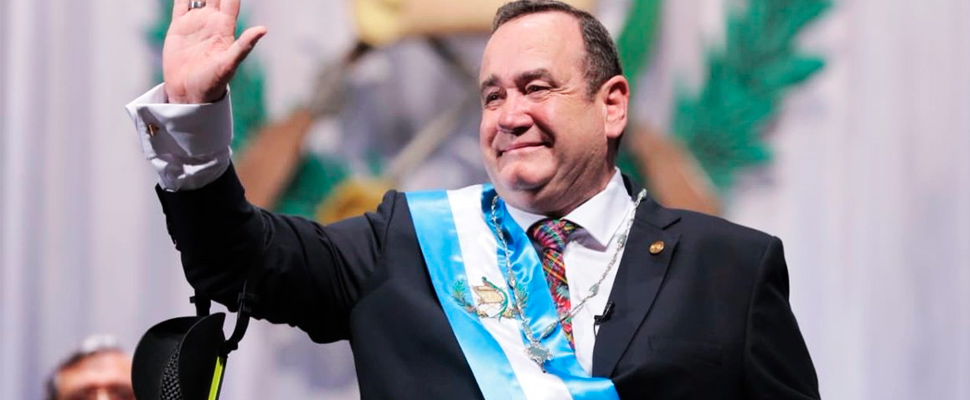Guatemala and El Salvador seek Central American unity
The two countries made important decisions with which they want the region to be strengthened in some of the issues they have in common, such as migration.

Alejandro Giammattei, president of Guatemala. / Photo: twitter.com/drGiammattei
LatinAmerican Post | Juliana Suárez
Listen to this article
Leer en español: Guatemala y El Salvador buscan unidad centroamericana
With the arrival of the new president in Guatemala, Alejandro Giammattei, neighboring countries met to agree on issues of great importance for their relationship. The border limits of the countries as well as the possibility that El Salvador has an exit to the Atlantic were the main themes of the last approaches of both countries.
The two Central American countries are looking to unite and to strengthen the region, so the issues they sought to be an incentive for the other countries of Central America. Thus, the presidents of both countries expect, it will become a stronger region internationally. "It is something historical, I do not remember that something so great happened as far as Central American union is concerned in the last century or in this one," Bukele said.
¡Un logro histórico!
-Vuelos abiertos
-Frontera abierta para personas y mercancías
-Nuestra salida al AtlánticoNuevos empleos e inversiones en Guatemala y El Salvador.
El mayor paso en la integración de Centroamérica en los últimos 180 años. pic.twitter.com/QmxIlKour2
— Nayib Bukele (@nayibbukele) January 29, 2020
Goodbye to border controls
As a way to unite countries, presidents Alejandro Giammattei (Guatemala) and Nayib Bukele (El Salvador) signed an agreement that tourist flights between both countries will be considered 'domestic' and non-international flights. The change of the tourist flights, an agreement of 'open skies', tries to lower the costs in the tickets and thus to promote the bi-national tourism and that this industry can grow.
Also read: Fujimorismo, the biggest loser in Peruvian politics
This, in general, seeks the free transit not only of people but also in the commercial sphere. To do this, they also agreed to abolish merchandise customs. Bukele said that the decision "is something that goes far beyond any free trade agreement, much more than any customs integration" and it is about breaking invisible barriers and strengthening ties.
These two advances in the area of unification and strengthening of the region can also mean risks in terms of illegal migration and smuggling. However, both presidents agree that they do not fear for this. Giammattei said that "migration is not stopped by physical walls," referring to the possible increase in illegal migrants. Likewise, they agreed that what they should do is strengthen the country and "human development" so that its citizens do not have to go to other countries, which will happen when they find opportunities in them; opportunities they intend to achieve by joining and uniting the region.
Departure to the Atlantic Ocean
Another way to strengthen each other through union was the promise that Guatemala will give El Salvador the possibility of building a port on the Atlantic coast in its territory. Thus, the country headed by Nayib Bukele would have an exit to the Atlantic. This decision is also another effort to strengthen trade routes.
Read also: Maduro Vs Duque: new tensions between Venezuela and Colombia
Currently, since El Salvador only has a coast in the Pacific Ocean, everything that enters or leaves the other side has to be transported by land from other ports. This has somewhat prevented the growth of the country's coastal industry.
El Salvador invests hundreds of millions of dollars in Guatemalan towns in need of jobs and investment.
El Salvador gets a key gateway for its exports and imports through the Atlantic Ocean, creating jobs in El Salvador as well.
¡Now that’s a win win! https://t.co/SqoVShL2dV
— Nayib Bukele (@nayibbukele) January 28, 2020
Although not much was specified in this regard, both leaders implied that a public-private alliance would be sought and that this act would be a historical event for Central America.




